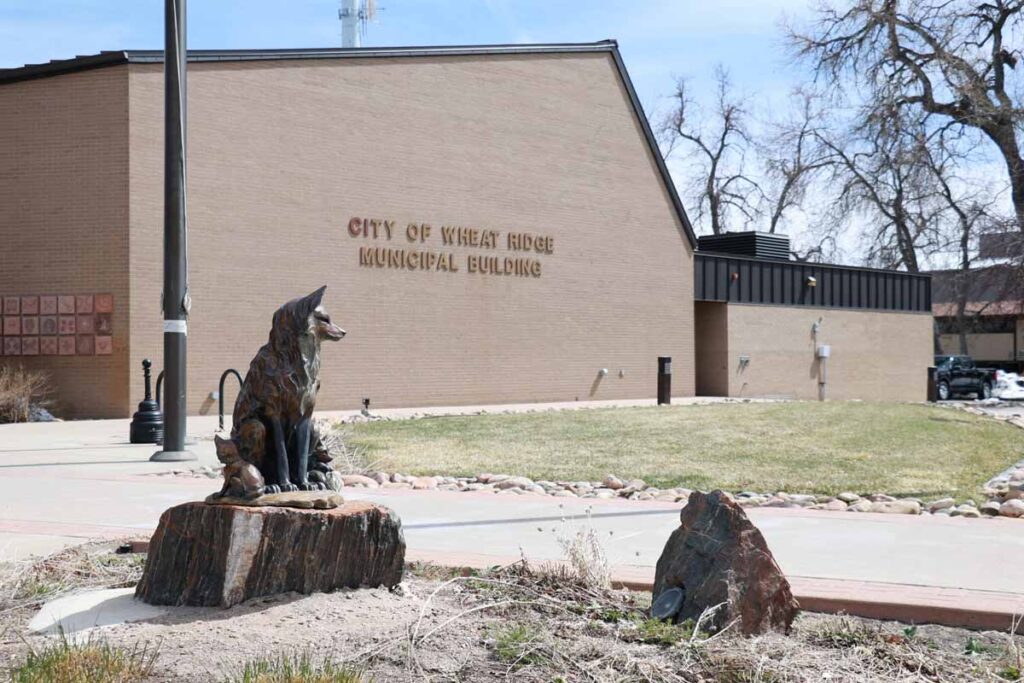Wheat Ridge’s city charter would be subject to more than a dozen potential amendments if voters approve a Nov. 5 general election ballot question.
The city council gave consent to the amendments in a June 17 study session and to proposed ballot language in a July 15 study session. A draft ordinance with the ballot language will be presented to the council at their Aug. 12 and Aug. 26 meetings for public input and consideration.
The proposal caused some city council members to express concerns that words such as “building heights and density,” “gender pronouns” and “family” in what could be seen as a lot of changes might lead to the proposal’s defeat on Election Day.
“Building heights and density limits will catch eyes,” said Councilmember Janeece Hoppe. “I think we should use caution when we use words that might send someone down the wrong alley.”
Hoppe suggested packaging the charter changes into understandable and transparent categories on the ballot. She also favored posting the red-line version of the charter on the city website so residents and voters could review the changes themselves.
“When you look at all these changes, it feels overwhelming and I worry that might make voters default to the ‘no’ vote,” said Councilmember Rachel Hultin. “When you look at some of the individual subjects, they relate to firebrand issues at the national level.”
Hultin added the city should be careful how it presents the information to the public and should be very intentional about how they are packaged.
Mayor Pro Tem Korey Stites noted “hot topic” words such as “gender pronouns,” “density” and “family.”
“We might look at these as everything is fairly innocuous, nothing is too controversial, but it’s all in how you spin it,” he said.
The proposed ballot wording reads:
“Shall the home rule charter of the city of Wheat Ridge, Colorado, be amended to: Eliminate redundant references; conform to statutory changes in Colorado legislation and court decisions; make uniform all references to persons and officers; clarify notice and publication requirements; clarify the duties of the mayor, city clerk, city treasurer, city judge and city manager to reflect current practice; and correct inconsistencies in reference to terms of office as a result of prior charter amendments?”
Charter acts like a constitution
In a memo to the council from City Manager Patrick Goff, City Attorney Gerald Dahl and other staff members, a charter was explained as equal to a constitution: It establishes the basic legal framework for the structure and operations of city government and can only be amended by voters.
As a home rule city, Wheat Ridge can make its own “local affairs” rules, subject only to Colorado constitution requirements and matters determined to be of “statewide concern.”
Typically, home rule municipalities make rules about how a city finances and procures public works, enters into contracts, elects its local officials, makes land use regulations, compensates its employees and adopts its laws.
Statutory cities, by contrast, are subject to all state laws regulating local jurisdictions.
On Nov. 2, 1976, Wheat Ridge residents voted to create a home rule charter commission and elected 21 residents to draft a proposed charter. The commission submitted a proposed charter in 1978.
It was approved by voters and has since been amended several times; the last major amendments in 2009 exempted portions of the city from the charter’s height and residential density limitations.
Language usage, elections, among changes
The memo explains the proposed changes address:
Gender pronouns: Throughout the charter, references to individuals using the gender pronouns “he/his/him” were changed. by using position titles or other gender-neutral language.
Citizenship neutrality: References to “citizen(s)” throughout the charter were changed to “resident(s)”.
Legacy and transitional text: Deleted text in nine sections that implemented the charter’s provisions during a “transition period” from voter approval of the charter to Nov. 6, 1979.
Form of government: Replaced a diagram with a definition of the city’s current council-manager form of government.
Election commission: Clarified the Colorado State Department confirms proof of residency qualification for voters.
Recall procedure: Changed from 60 to 90 days when the council sets a date for a recall election to conform to state statute. Deleted “but no vote cast shall be counted for any candidate for such office unless the voter also voted for or against the recall of such person sought to be recalled from said office. The foregoing sentence or instructions shall be printed on the ballot to comply with current election law.”
Dahl said the language was removed to conform with court rulings.
Vacancies in elective offices: Included “embezzlement of public money, bribery, perjury, solicitation of bribery or subornation of perjury” as offenses preventing someone from seeking election to any city office and deleted “a felony” to conform to the Colorado constitution.
City manager: New language to allow the city manager to “Execute on behalf of the city all contracts binding the city,” considered best practice in the council-manager form of government used in Wheat Ridge.
Goff noted the charter now calls for the mayor to sign certain documents Goff handles. Dahl explained current and past mayors gave Goff signature authority, so the proposed change would remove that step.
Duties of city clerk: Deleted “The city clerk shall supervise the staff under his jurisdiction” to conform to current practice. The same wording for the city treasurer was also deleted.
Building height and density limitations: Deleted language related to the definition of “family” to comply with current state law.
Dahl said the change stemmed from a state legislative bill that said local governments cannot regulate housing based on the occupants having a familial relationship unless there is a safety or health reason.
“It says we can’t use that definition to set occupancy limits,” he stated.
The provision has been used related to a 21-units-per-acre limit, Dahl added. That per-acre limit would remain in place.
Duties of the presiding judge: Deleted “He shall supervise all court personnel” and “He shall submit a yearly budget request to the council for the proper functioning of the court.” to align with the current administrative management model of the municipal court.
Amendments after adoption: Deleted a requirement of council approval to transfer any not-designated money between departments to align with the council-manager form of government.
Other proposed changes updated legal citations and complied with “changes in the law, references to controlling state law and recommendations based on current practices due to advances in technology and practice since the charter’s adoption.”
The memo also described the amendments as updating and modernizing the language, “including the removal of ambiguities, clerical errors, outdated provisions and giving the city flexibility in its operations.”
The proposed changes are considered “non-substantive and do not propose any major policy changes to the charter.,” the memo stated. The council may discuss forming a charter commission later to consider more substantial policy changes.






